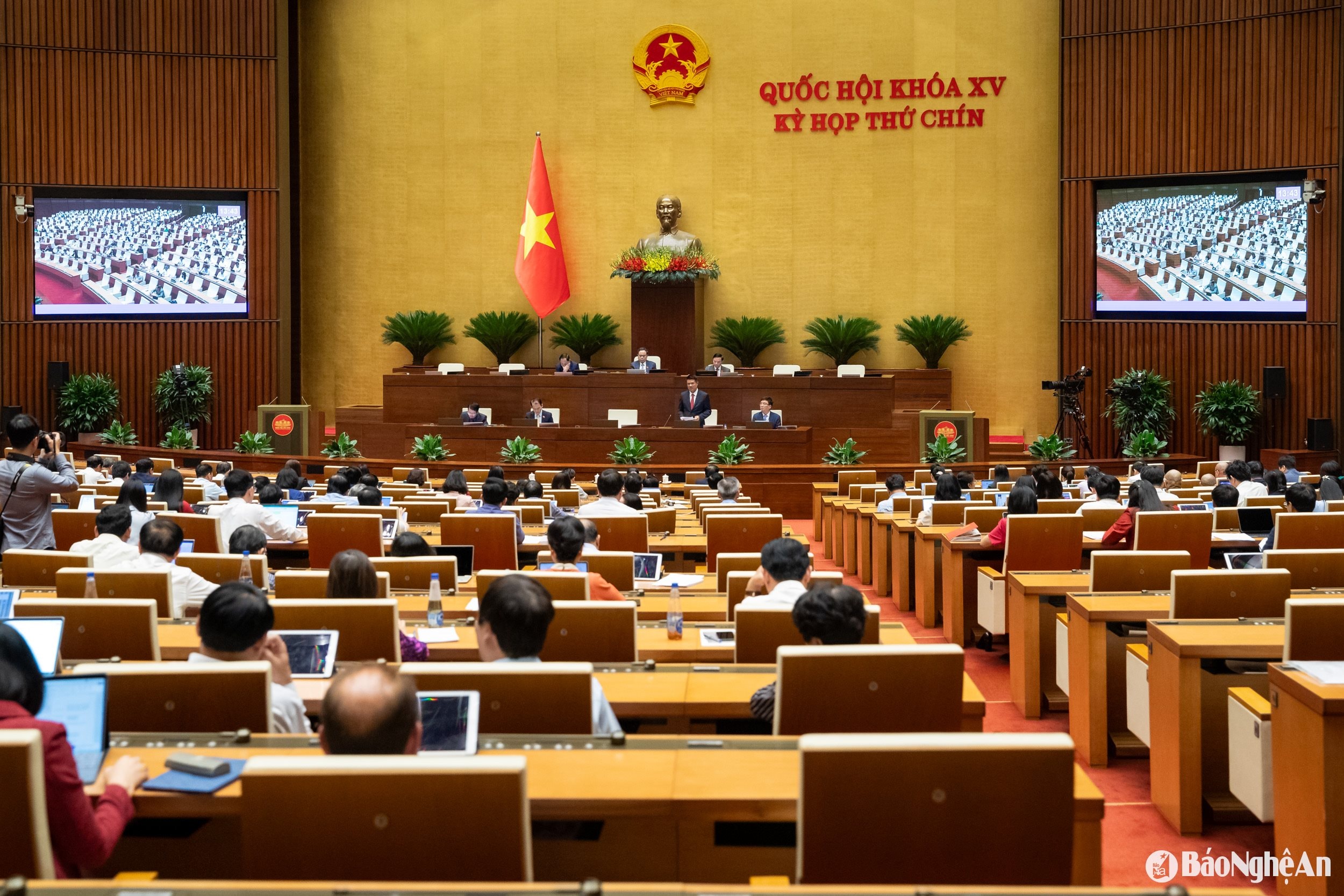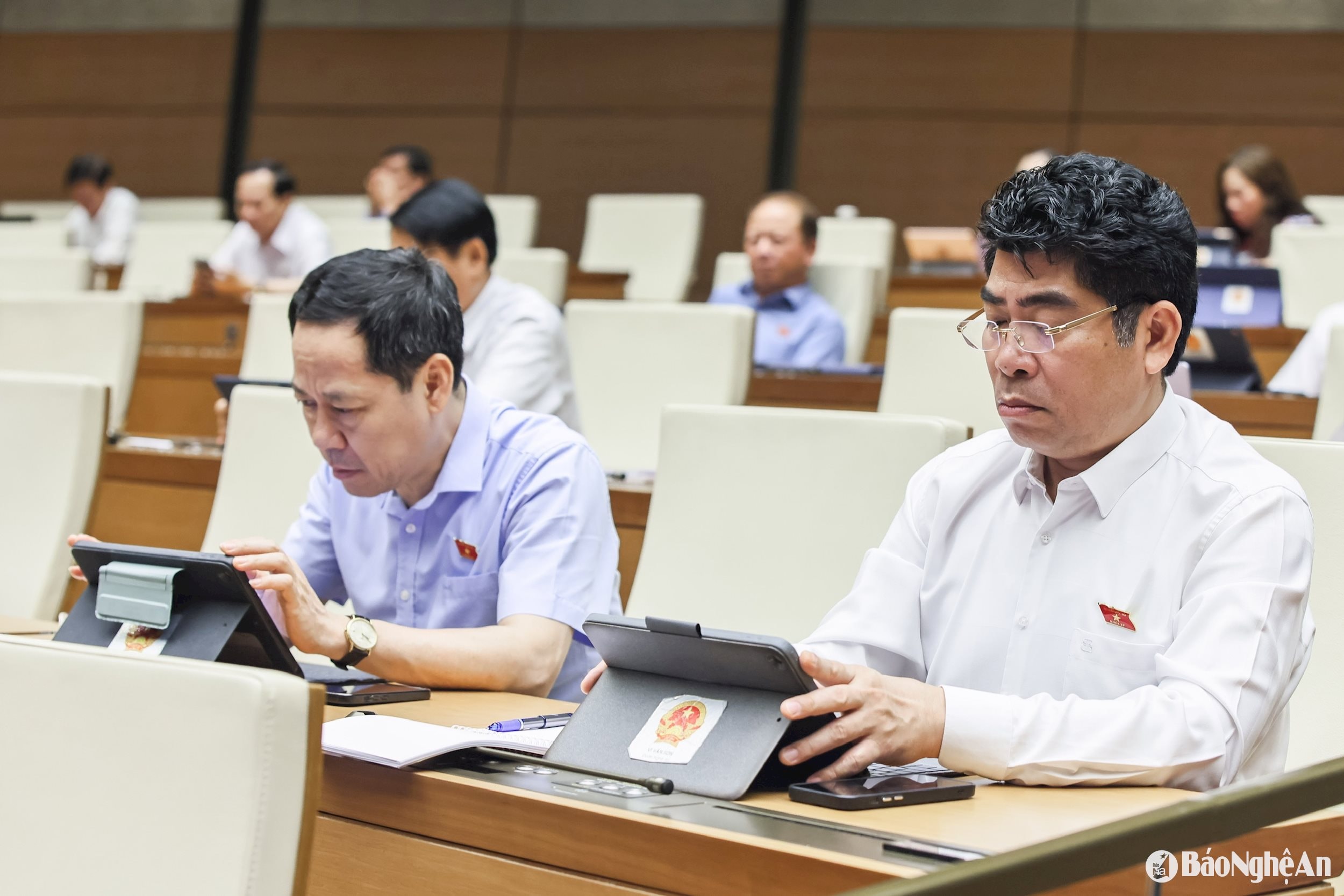The National Assembly listened to the presentation of the draft Law on State of Emergency.
On the afternoon of May 27, the National Assembly listened to presentations and reports on the examination of the following draft laws: Law on State of Emergency; Law on Railways (amended); Law on amending and supplementing a number of articles of the Criminal Procedure Code. Vice Chairman of the National Assembly Nguyen Khac Dinh chaired the meeting.

At the meeting, General Phan Van Giang - Politburo member, Minister of National Defense presented the Draft Law on State of Emergency.
Accordingly, the development and promulgation of the Law on State of Emergency aims to institutionalize the Party's policies and viewpoints on national defense, security, and protection of the Fatherland in the new situation.
At the same time, overcome limitations and shortcomings in practice, ensure unity and synchronization, improve the effectiveness and efficiency of laws on emergency situations, thereby contributing to protecting the interests of the State and the rights and legitimate interests of organizations and individuals.
.jpg)
The Draft Law consists of 6 chapters and 42 articles, stipulating the principles, order, procedures, and authority to declare, announce, and abolish a state of emergency; measures to be applied in a state of emergency; organization of implementation of the Resolution to declare and the Order to declare a state of emergency; responsibilities of agencies, organizations, and individuals in a state of emergency. The Law applies to agencies, organizations, and citizens of Vietnam; foreign individuals, organizations, and international organizations residing and operating in the territory of Vietnam.
The Draft Law also stipulates the organization of implementation of the Resolution to declare and the Order to declare a state of emergency; responsibility for implementing measures in a state of emergency; mobilizing armed forces to the area where the state of emergency is declared; equipping and using weapons and support tools; measures to handle detainees; enforcement forces in a state of emergency; and application of laws on force majeure.

According to the draft Law, if necessary, the Prime Minister shall request the President to mobilize armed forces to the area to declare a state of emergency regarding national defense, security, and social order and safety.
The Minister of National Defense and the Minister of Public Security shall mobilize forces under their authority to the locality to declare a state of emergency in the event of a major disaster or epidemic to support local forces in rescue operations, overcoming the consequences of the disaster or epidemic, or to stabilize and maintain security, order and social safety.
Representative of the agency examining the draft law, Chairman of the National Assembly's Committee on National Defense, Security and Foreign Affairs Le Tan Toi agreed with the promulgation of the Law on State of Emergency; stating that the promulgation of the Law aims to perfect the legal system on state of emergency in preventing, combating, overcoming disasters, incidents, measures to handle urgent situations, urgent military, national defense, security, social order and safety; ready to respond effectively to traditional and non-traditional security challenges.

Regarding the scope of regulation, this law does not replace specialized laws that regulate issues related to the state of emergency. However, the determination of the state of emergency in specialized laws is not complete and specific, so it is necessary to study and regulate the determination of the state of emergency, the authority, and measures applied in the state of emergency in this law in a complete and appropriate manner, ensuring consistency and unity in the legal system on the state of emergency.

Also in the afternoon session, the National Assembly heard the presentation of the Submission and Report on the review of the draft Law on Railways (amended); and discussed in the hall the draft Law on amending and supplementing a number of articles of the Criminal Procedure Code.


